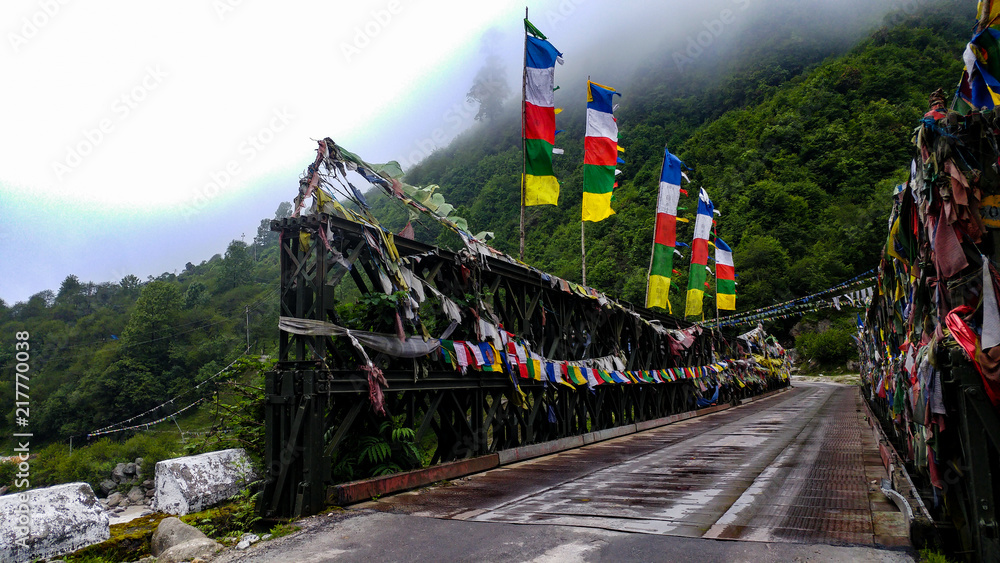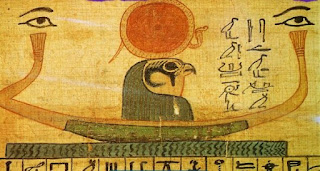Thursday, Feb 2, 2023: Diana Rosen's "Crossing the Teesta River Over the Suspension Bridge"
Diana Rosen is an essayist, poet, and flash writer whose first full-length flash and poetry book, "High Stakes & Expectations", was released in spring of 2022. She has work forthcoming in Drunk Monkeys and The Reform Jewish Quarterly and recent credits in Pine Cone Review, Ariel Chart Literary Journal, As It Ought to be Magazine, and Al-Khemia Poetica. To read more of her work, please visit and subscribe to www.authory.com/dianarosen
Crossing the Teesta River Over the Suspension Bridge
The four of us are in the Indian-style Jeep. Devan, our driver, is at the wheel; our host, Rajah,
next to him; Alexander and I claim the seat. I’m visiting Darjeeling to write about tea. Alexander
is a German graduate student here to study biodynamic farming and insects for a degree from
University. We’re off on a side trip to Sikkim where we will meet the former prince of an
independent country that’s now a reluctant state of India.
It’s already been quite an adventure. At one point, we reached a fork in the road and neither
Devan nor Rajah could determine which road we should take when we hear, “Go left!”
Following the gravelly voice, we look to our right, see a small bony, toothless man in a modest
loincloth sitting lotus style in a carved out shelter on the side of the mountain.
“What are you doing there,” Rajah asks.
The old man, laughing, replies, “Hiding out a few days from the wife.” All three men nod in
tactic agreement. I mentally roll my eyes, marvel how all cultures seem more alike than different.
We follow the old man’s directions as a chorus of red monkeys scramble on top of the fence that
borders the road, screaming continuously as if to say, “Keep to the left, keep to the left,” as they
stop without missing a beat to groom one another and chatter to themselves before carrying on
their cheerleading.
Too soon for me, we come to a narrow wooden suspension bridge with enough space between
each slat that I can see the river bed of the Teesta River left parched by the recent drought, with
only occasional ribbons of mud and rocks scattered along the river bottom. Only one car at a
time is allowed on the bridge and we wait our turn before easing up onto it. From our swinging
aerie three thousand feet above, the river is no longer the rafters’ nirvana; no longer swollen
banks are so common during the monsoon season. Rajah senses my fear and in a measured, calm
tone, says, “There’s nothing you can do. We will get across. Devan, he is good, he has done this
many times.” The driver looks at Rajah, with a turn of his head so quick I feel a thump in my gut,
believing the truth may be that this is his first time on this flimsy excuse for a bridge.
I want to pull Rajah from his front seat, bop him one on the nose, and scream, “Get me out of
here,” when I realize what he has said is true. That feeling lasts a microsecond as my brain
screams, “Nothing you can do? Nothing? We’re three friggin’ thousand feet above a pile of
rocks; this car and we weigh nearly a million tons, and I don’t see much civilization around here.
How long will it be before they discover us and, if we could survive, where’s the nearest hospital
and….”
At that very second, Rajah turns to me again, and smiles, projecting the serenity of a dedicated
yogi, the patience of a deeply believing Rastafarian, sans dreadlocks, native born and bred in the
land of karma, exuding a sort of Indian que sera sera. My body releases tension slowly like a
too-rigid balloon losing small gulps of helium. I submit to my fate.
I remind myself we have already traveled enough hazardous miles to verify that Ganesh surely
must be ahead of us removing all obstacles, like when we drove along a stretch of the Himalayas
becoming a so-called paved road that was more a jumble of broken rocks, picked up since dawn
by women who now carried many of them in baskets in their arms or balancing one or two on
their heads. The men carried vats of hot tar on their heads and walked barefooted. It appeared
this road would be paved several feet at a time. How the people, much less the tar truck, came to
this point miles away from anywhere, I do not know. We were stuck while the workers
scrambled away from our path and the tar truck backed up to a point where it could hug the
mountain tightly enough so our Jeep could pass.
Devan leads us expertly through this anomaly of road clearing and paving just as easily as he had
driven us down from the hilltop tea plantation yesterday and up toward the monastery where we
saw the orphaned children chanting, behaving like children everywhere, some ogling us: the
blond, blue-eyed, very white Alexander, and me with my Clairol red hair. A few were yawning,
others intent on their prayers, a few wiggling fingers in their noses, or giggling. We stayed
overnight in spare, pristine clean rooms albeit with only cold water in the bathrooms. The
window of my room is like a viewfinder framing a perfect vista of snow-capped Himalayas as
the sun awakens me. We dine on a simple breakfast of hot chai and creamy scrambled eggs no
doubt made from the gifts of hens just moments before.
Our car reaches the end of the four-mile long wooden bridge, edges its way down the dirt
pathway and onto another road, and I forget to be fearful of the dizzying heights and become a
tourist again marveling at the rolling green hills of Sikkim dotted with two-story farmhouses
white with brown crisscrosses of wood that could be Tudor cottages in the Cotswolds or ryokans
in rural Japan.
The prince of Sikkim lives in a humble, nondescript stone house with rounded interior walls. He
greets us warmly and serves us momos, the north Indian version of pot stickers, neat little
pockets of vegetables and chicken wrapped in dough and steamed. They’re the most delicious
I’ve ever had, or perhaps the hours-long trip has made me ravenous.
The prince leaves Alexander and me to have a private talk with Rajah (Devan never accompanies
us except in the car. Rajah is here explicitly to convince the prince about growing tea in the
Indian state that once was an independent country of Sikkim, lush green land of snow lions and
pandas, wild orchids and cardamom, whose staunch independence was curtailed once India
aggressively annexed it as a state. Nothing definitive is said, Rajah tells us later.
We return to our home base in Kurseong, Darjeeling, the trip seems shorter than when we were
en route. I was sad to leave the modest hotel room with textiles more like those of Mexico than I
expected in Sikkim. Disappointed not to see the nearby grove of rhododendron in full bloom,
Rajah points to the foreign word on my door he alleges is rhododendron; I believe him. We dine
on momos in the most dining hall and I begin to understand the variety of flavors and spices in
this delicious dumpling. Memories cling and enchant for where else can red monkeys cheer your
journey, chai warm your body, detours are not really detours at all but charming glimpses into
other worlds, other times, and there is no need to worry because, what can we do but accept what
lies ahead.
© 2023 Diana Rosen
( previously published in May 2021 edition of Rhodora Magazine)




Comments
Post a Comment